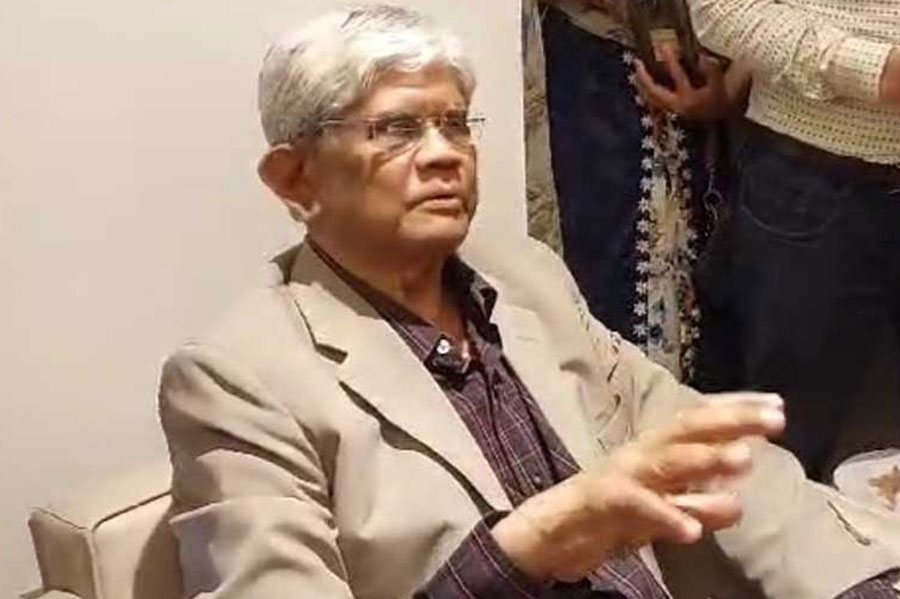

Finance Advisor Salehuddin Ahmed has said his primary focus during his tenure will be to overhaul the financial sector, with a particular emphasis on resolving issues within banks.
At a discussion on the role of remittances in the country's economy at the Bangladesh Secretariat Reporters’ Forum (BSRF) on Sunday, he explained that the country’s banking system suffers from issues such as bad loans, with some banks reporting up to 80 per cent non-performing loans.
"My short-term focus is on improving the financial sector and fixing banks. There are troubled banks and board issues that need attention," Salehuddin said.
He also said when he served as Bangladesh Bank governor, the bad loan rate was 16 per cent, as per a bdnews24.com.
He added that the outstanding default loans during his tenure amounted to approximately Tk 280 billion to Tk 290 billion, whereas current estimates now stand at a staggering Tk 2.5 trillion.
Salehuddin emphasised the ongoing efforts by the interim government to stabilise the economy, which is still suffering from the aftermath of the fall of the previous government following a mass uprising.
Despite the progress, many sectors still face sluggish growth.
Regarding revenue generation, he noted the effects of political unrest and protests on tax collection, which has resulted in a Tk 580 billion shortfall for the first half of the fiscal year.
As per the agreement with the International Monetary Fund (IMF) on a $4.7 billion loan, the government has been directed to increase revenue by an additional Tk 120 billion in 2024-25 fiscal year.
However, in response to criticism from businesses, the National Board of Revenue (NBR) increased value added tax (VAT) and customs duties on over 100 products midway through the fiscal year.
In his response to VAT increases, Salehuddin said there were no alternatives, as there were limited immediate options for raising taxes.
He explained, "Tk 120 billion is not too much. Police vehicles have been burnt. Where will that money come from?"
He acknowledged the public’s desire for lower taxes but pointed out that, in some cases, increasing taxes was unavoidable.
He said many economists, including his former students, had suggested reducing all taxes, but this approach was not feasible without adversely affecting the economy.
“Now, the economy is relatively balanced, but I won’t claim that it has fully recovered,” Salehuddin concluded.


 For all latest news, follow The Financial Express Google News channel.
For all latest news, follow The Financial Express Google News channel.